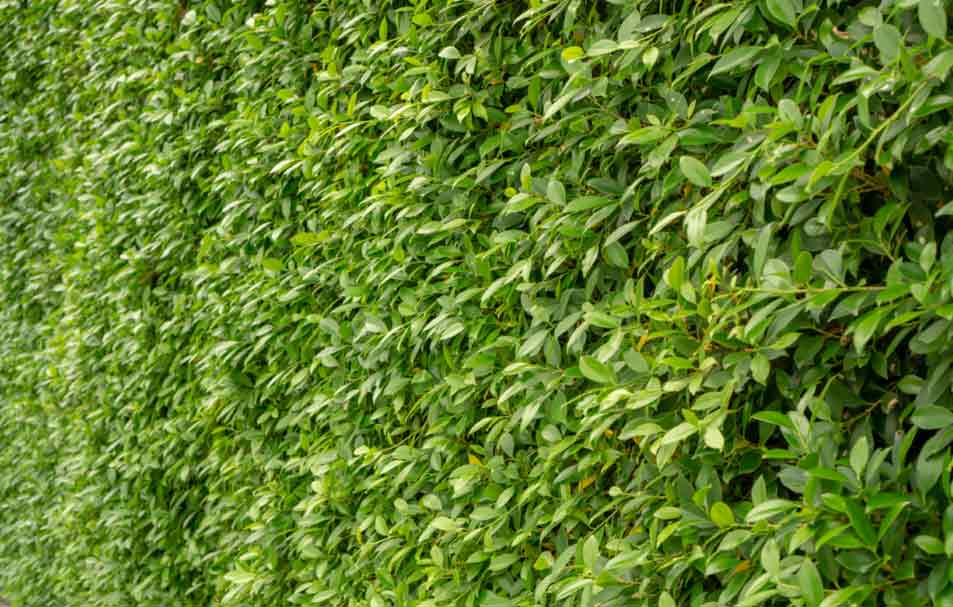You should fertilize ficus plants once a month during spring and summer, and reduce the frequency to once every two months during the fall and winter.
Ficus trees need water-soluble fertilizer with micronutrients and an NPK ratio of 3-1-3 or 3-1-2. Slow-release 10-10-10 or 8-8-8 fertilizers also work.
Our Top Ficus Fertilizer Picks
Overall Best Choice
Best for Healthy Roots
Best Fertilizer Pellets
Best for Consistent Nutrients
Best for Green Leafs
Best Slow Release

6 Best Fertilizers for Ficus Tree Reviews
These are the fertilizers that we consider a good choice for your indoor or outdoor ficus plants. Check each one out and pick the best one that fits your needs.
1. Aquatic Arts Ficus Tree Food | Improves Leaves and Branches
If your plants have severe issues with their leaves, roots, and stems, this ‘Aquatic Arts Fig Tree Fertilizer’ can help. It contains vital micronutrients such as nitrogen, phosphorus, and potassium. And the NPK ratio is 3-1-2, making it a good option for your hungry ficus trees.
Nitrogen promotes new leaf growth. With proper application, your plants will absorb nitrogen to improve the color of the leaves. Phosphorus will help stimulate a better root system and protect it from diseases like root rot. The potassium will help achieve stronger stems and drive quick growth.
If you apply it properly, you won’t need to worry about burning your trees because the fertilizer formula is natural and safe to use.
Pros:
Cons:
Suggested Read: Top Picks of Crepe Myrtle Fertilizers
2. Fiddle Leaf Fig Plant Food – Healthy Roots, Stems, and Leaves
This exclusive plant food is an ideal choice for your starving fiddle leaf fig plants. This plant food has a 3-1-2 NPK ratio that ensures a great combination of nitrogen, phosphorus, and potassium for fig plants lacking nutrients. Plus, its slow-release formula provides nutrients for a longer time compared to some quick-release fertilizers.
This organic ficus plant food is a certified non-toxic fertilizer. It doesn’t contain harmful chemicals or urea. And there is no hassle of measuring or mixing anything; you can use it directly from the bottle.
This organic fertilizer is rich in micronutrients and is an excellent choice for Ficus Lyrata, but it can be used on other ficus and rubber plants.
Pros:
Cons:
Also Read: Fig Tree Fertilizer Production
3. The Grow Co Ficus Plant Food – Slow Release Fertilizer Pellets for Potted Figs
If you are looking for an ideal fertilizer for your potted figs, this ‘Grow Co Plant Food’ should be the first thing you should check out. This fertilizer formula is rich in vital micronutrients like magnesium and sulfur, which makes your ficus leaves healthy and glossy.
The ‘Slow-Release Fertilizer Pellets’ is an intelligent alternative to liquid fertilizers. It will gradually feed your plants. It’s an excellent choice for Ficus Lyrata and other popular types like Ficus Benjamina, Ficus Religiosa, Ficus Audrey, Ficus Elastica, and more.
Pros:
Cons:
4. Perfect Plants Fertilizer for Indoor and Outdoor Use on All Ficus Varieties
If you are a busy person who can barely take care of the ficus plant at home or office, this ‘Perfect Plants Slow-Release Fertilizer’ is the right choice. These pellets slowly feed your plants over an extended period of time.
‘Perfect Plants’ says that this slow-release fertilizer will release vital nutrients into the soil for over six months. So, unlike quick-release fertilizers, you don’t need to fertilize as often. It’s easy to apply, so it will save you time.
Plus, this fertilizer comes with a fantastic 16-5-11 NPK ratio, which ensures a good amount of nitrogen, phosphorus, and potassium. So, it will help your plants achieve better root structure, vibrant leaves, and an overall healthy look.
Pros:
Cons:
Next Read: Can You Control Ficus Tree Roots
5. Easy Peasy Plants Plant Food for Houseplant Fig Tree
Doesn’t it frustrate you when you want to fertilize your plants, but can’t figure out the instructions correctly? We understand how it feels! Not with ‘Easy Peasy Plants Plant Food’ because, as the name says, understanding the instructions and applying the fertilizer is ‘easy-peasy’!
This is the perfect plant food for ficus trees. It has a 6-2-4 NPK ratio to give plants nitrogen, phosphorus, and potassium. The essential nutrients will help ficus trees achieve better stems and leaves with vibrant colors.
The fertilizer is easy to mix with water and apply. It can be used on different ficus plants, including Ficus Religiosa, Ficus Audrey, Ficus Benjamina, and more.
Pros:
Cons:
6. Perfect Plants Ficus and Bonsai Fertilizer Pellets
When you are looking for the top fertilizer for ficus trees, don’t limit yourself to checking out fertilizers only for indoor and outdoor ficus plants. These bonsai fertilizer pellets are an excellent choice for a ficus plant that fits in the palm of your hand!
These slow-release fertilizer pellets are designed to provide essential nutrients to your bonsai plants for a long time. So, you can focus on tending your tree limbs rather than worrying about frequent fertilization. The 18-6-8 NPK ratio ensures essential nutrients in a good amount. It comes in a re-sealable bag for easy storage.
Pros:
Cons:
Frequently Asked Questions
Final Thoughts
If you want a thick, lush green ficus tree, you must ensure proper fertilizer, watering, sunlight, etc. In this article, we picked six fertilizers that we think are best for ficus trees. Check each out and get the best one to ensure the proper nutrients for your hungry ficus plants.






